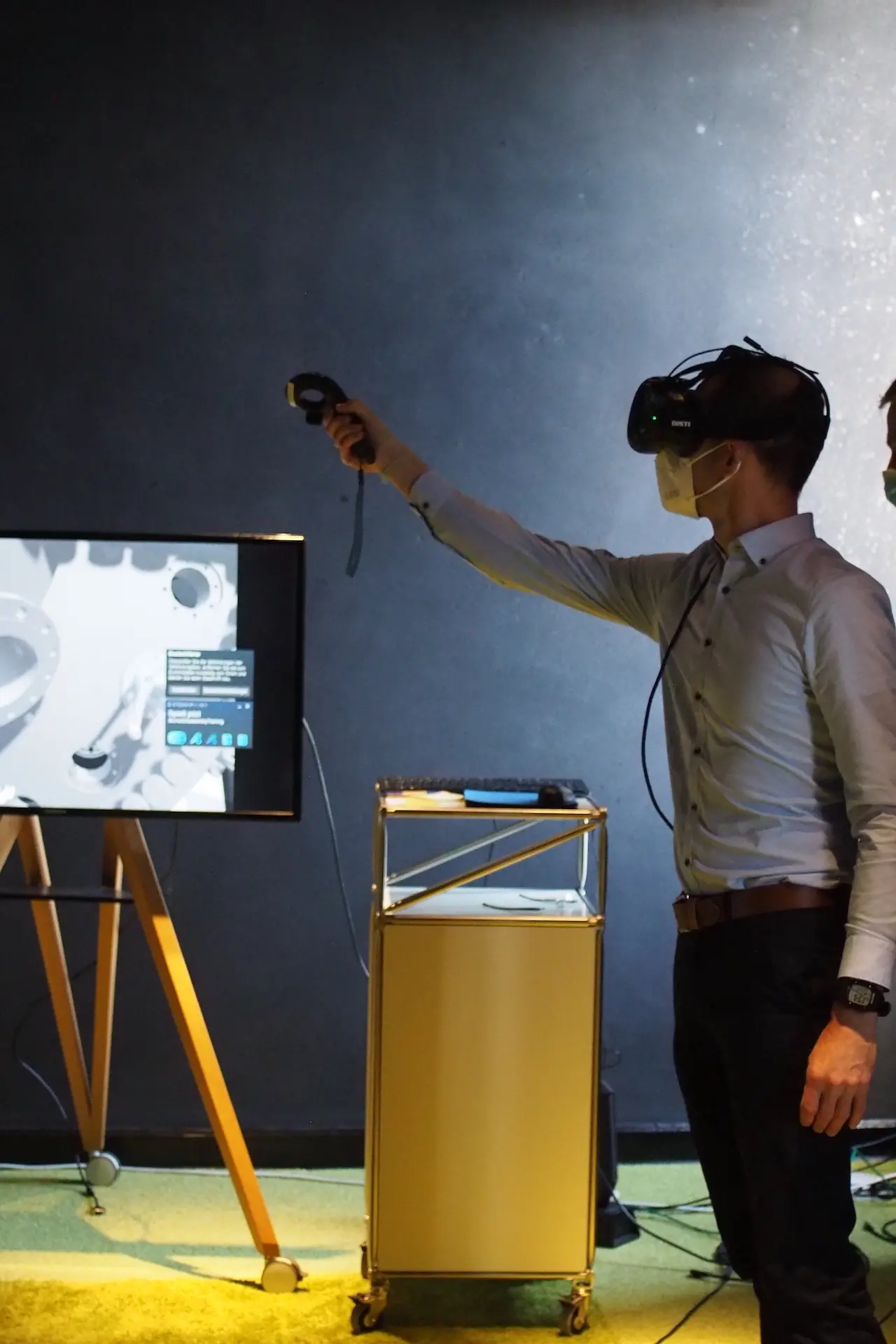Background
The energy sector offers a steadily growing field of application for the know-how of German companies abroad. Hundreds of small, medium and three large load gas and steam turbine power plants have already been provided to Egypt. For their maintenance, servicing and repair, there is an urgent need for German companies to have regular, higher-value activities performed by Egyptian specialists. This would save travel by German service personnel or freighting of workpieces between locations. Further advantages would be a more efficient training of new employees as well as on-site after sales service and troubleshooting.

In order to realize the qualification of Egyptian skilled personnel, workplace-based, modular learning scenarios are to be developed and tested in both a virtual and a real learning space. For this purpose, a qualification cluster has been formed, consisting of the companies Siemens Gas and Power GmbH & Co KG, which have been linked in a value chain for years, and the SMEs EP Ehrler Prüftechnik Engineering GmbH and OT Oberflächentechnik GmbH & Co. KG as key suppliers and subcontractors. The cluster includes all Siemens combined cycle gas turbine (CCGT) power plants in Egypt. The Berlin University of Applied Sciences and the Sustainum Institut für zukunftsfähiges Wirtschaften Berlin e.V. are further education and scientific partners in the cluster. The CCGT cluster plans the cooperative development and sustainable implementation of an agile, hands-on qualification for skilled workers in Egypt in a mixed reality learning space.
Goals
With the establishment of an inter-company mixed reality learning space at the Egypt Service Center (ESC) in Ain Sokhna, the qualification concept builds on an existing contribution of Germany to the education and training sector in Egypt. The demand-driven combination of virtual (in different immersion depths) and real modules (in the existing training center) in the didactics of agile learning enables an immediately applicable and problem-oriented competence development for Egyptian professionals. The ESC is available for other SMEs in the economic cluster and for the entire North African market. This will enable the use of skills development by SMEs throughout the region. Under the circumstances of a changing global economic cooperation, a demand-oriented, virtualized competence development for local skilled workers becomes a decisive competitive advantage for German companies. Thus, the cluster project unfolds a lighthouse character for workplace-based skilled labor development and digitalization, especially as an access to the African market.
Cover image: Worklife Siemens CC BY-NC-ND 2.0
